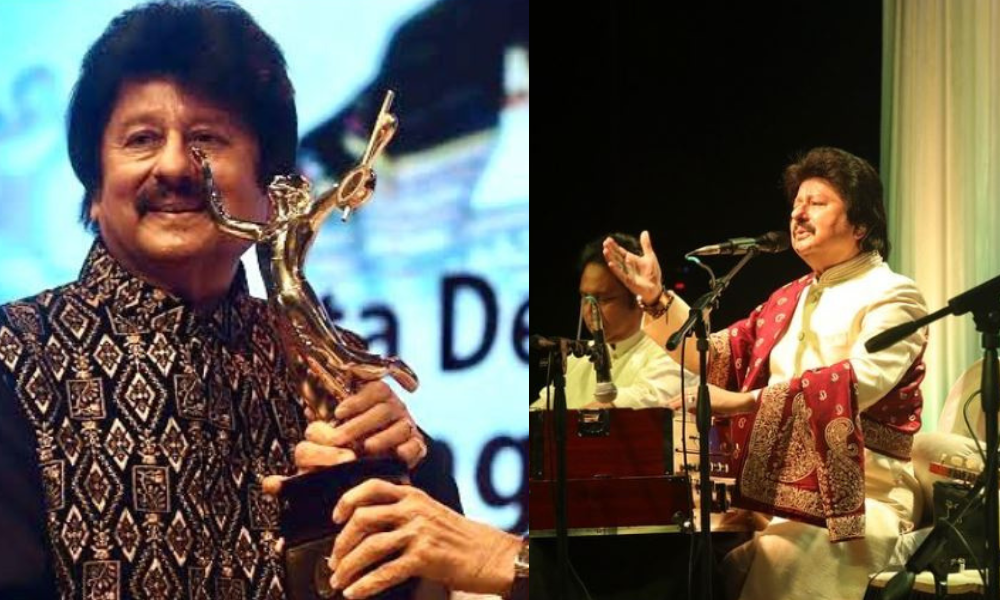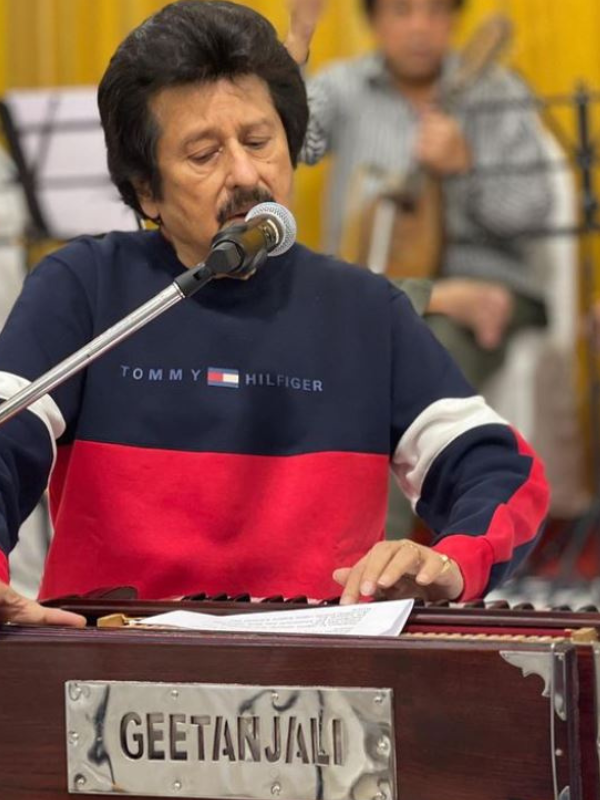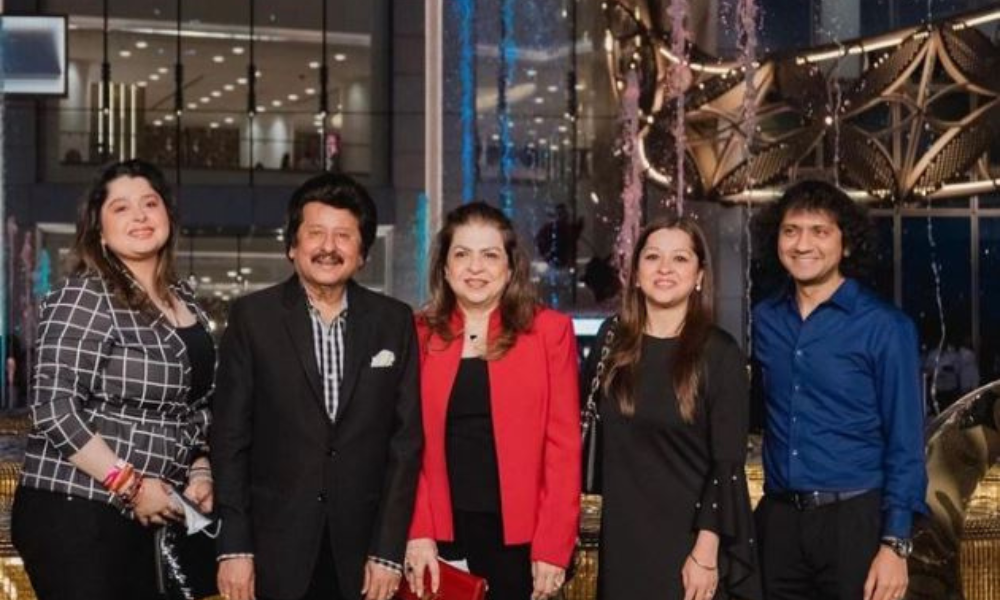Late singer Pankaj Udhas used to express sorrow at the sad state of affairs in Bollywood music. The ghazal singer who shot to fame after the popularity of “Chithi Aayi Hai” in 1986 was already an established artist. His melodious renditions still echo in the hearts of lakhs of fans with soul-touching lyrics. Udhas always felt something was missing in Bollywood, and that music was becoming westernised.
Pankaj Udhas’ Journey from Stage to Playback
Ghazal enthusiasts knew who Pankaj Udhas was even before his Bollywood debut. Producer and actor Rajendra Kumar contacted him for the film “Naam” in 1986, which had the song “Chithi Aayi Hai.” Mahesh Bhatt was the director, and the film’s success, music, lyrics by Anand Bakshi, and treatment of the song propelled him into the spotlight. He also appeared in a cameo as a ghazal singer in the same film.

There was no looking back for the playback singer. You might have also remembered watching his hit pop songs that dominated our TV screens in the 90s and early 2000s. “Ahistha ahistha” featuring Sameera Reddy was one of the most beloved Hindi pop songs.
He said in an interview that whenever he sang the “Chithi Aayi Hai” song abroad, it touched the hearts of non-residents there. “They are those who crave the fragrance of the mitti (soil) of their land, and who feel a loss of sense of belonging.” Even people in India used to cry. When he sang it in Kochi, a Bihari listener said that he was taken back to his homeland. “In a sense, the song affects everyone who feels displaced.”

Ghazals Endure the Test of Time
Ghazals have this magical power to withstand and endure time constraints. Numerous evergreen tracks in his mesmerising voice are proof of this statement. But as he fell ill close to the end, Pankaj Udhas felt the lack of ghazals in the Hindi film industry and in India, in general, was a big loss.
Musicians were not trying to resurrect this timeless art, he felt. “They think in terms of Hollywood,” he complained. As a huge fan of Begum Akhtar, Mohammed Rafi, and Mehdi Hasan, he insisted that ghazals have the quality to be immortal. But, slowly, their presence was diminishing, and only a handful of movie songs can be termed as ghazals now.

“In those days, filmmakers and music directors were well-versed in Urdu and Hindi. For instance, Guru Dutt was one filmmaker who groomed classical poets.” He goes on to quote the songs from “Kaagaz Ke Phool.” However, contemporary moviemakers focus only on action-oriented films and technical aspects, leaving out the emotions.
Pankaj Udhas added, “We don’t have the mind to think in Hindi. They think in terms of Hollywood. This is certainly a setback for ghazals.” For now, we can agree that with his death, an era has ended. All we have is his memory through songs like “Na Kajre Ki Dhar” and “Jiye Toh Jiye Kaise” among many others.



